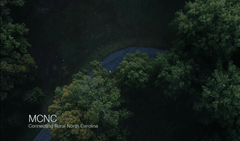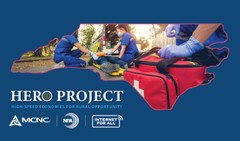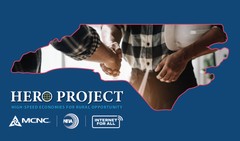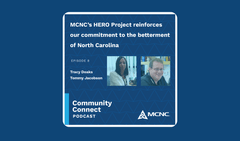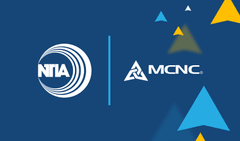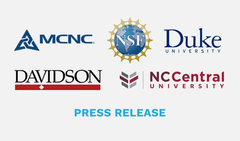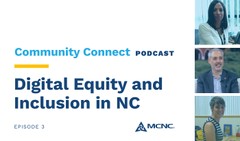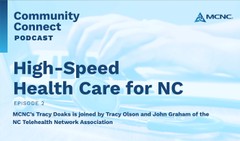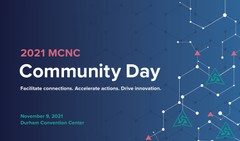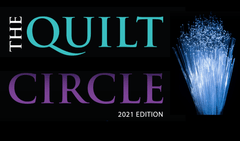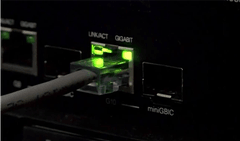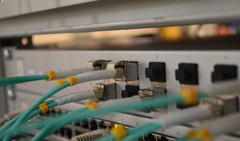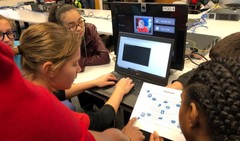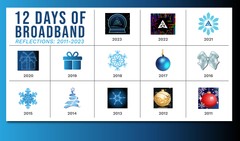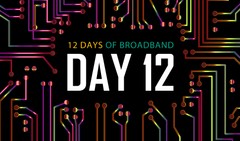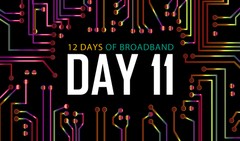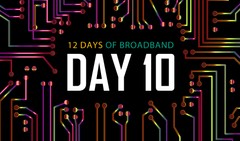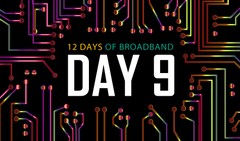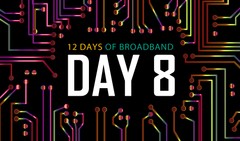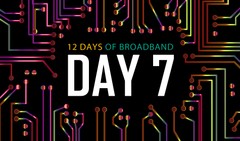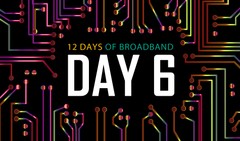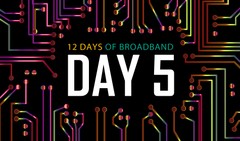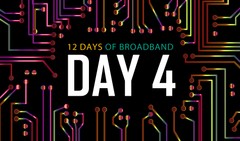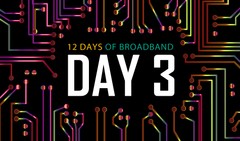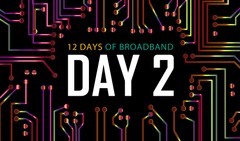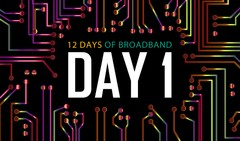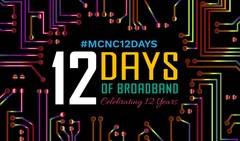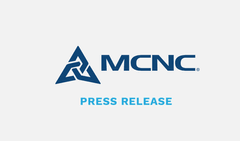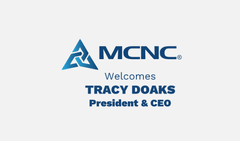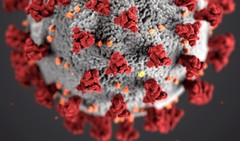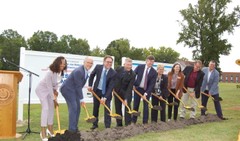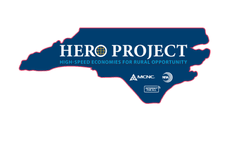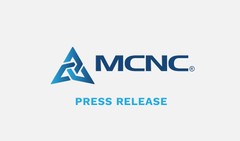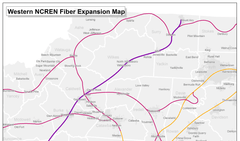High-Speed Fiber Network to Benefit Triangle Communities

DURHAM, N.C. (July 31, 2018) -- A project that installs 110 miles of fiber optic cable throughout the Triangle will bolster internet speed and reliability for local governments, schools and health care, project officials announced Tuesday.
MCNC, the nonprofit owner and operator of the North Carolina Research and Education Network (NCREN), is partnering with Duke University and Health System to build a regional fiber optic network across the Triangle. The work is expected to be completed in August.
MCNC and Duke are each installing about 55 miles of the fiber, which will together form a ring spanning from Durham to Raleigh, Cary, Chapel Hill and encompassing Research Triangle Park. The total cost of the project is more than $10 million, with the cost shared equally by MCNC and Duke.
"We’re thrilled to partner with MCNC in what truly delivers a win-win outcome. Since each of us need an extensive network in the region, it was only logical for us to team up and build it together. Not only does it contain costs for both organizations, it gives us the desired redundancy for reliability and reach that would be difficult to establish on our own."
--Tracy Futhey, Chief Information Officer, Duke University
“More than 20 years ago, MCNC partnered with the three R-1 research universities in the Triangle to acquire some of the first fiber that served the region,” said Jean Davis, CEO of MCNC. “With the contract to use that fiber nearing the end of its term, we needed to replace the fiber to ensure our customers continue to receive reliable technology solutions for innovation. We wanted to use a partnership approach as we had in the past to maintain a real competitive advantage for our community to innovate and thrive.”
Duke was a natural collaborator for the latest fiber refresh project since it operates more than 80 research, education, health clinic, hospital and urgent care facilities in the region, said Tracy Futhey, chief information officer at Duke.
“We’re thrilled to partner with MCNC in what truly delivers a win-win outcome,” Futhey said. “Since each of us need an extensive network in the region, it was only logical for us to team up and build it together. Not only does it contain costs for both organizations, it gives us the desired redundancy for reliability and reach that would be difficult to establish on our own.”
The fiber project directly connects to the statewide NCREN backbone, which provides network connections to all of the North Carolina’s schools, community colleges and universities, as well as state and municipal sites. Through the NCREN backbone, MCNC provides affordable and reliable solutions to meet the ever-growing demand of high-speed internet services from its K-20 education, research, nonprofit health care and community anchor institutions.
The project enables Duke to connect to existing and future academic and clinical sites in Durham and throughout the Triangle.
Local communities will benefit from the high-speed bandwidth linking research, education and patient care locations throughout the Triangle, Futhey said. It provides the speed and reliability needed to promote better health outcomes by swiftly transmitting medical images and health records; by supporting the resources needed to engage telehealth, and other electronic evaluations and treatments; and by giving practitioners opportunities to engage in professional development activities via teleconference, Futhey added.
